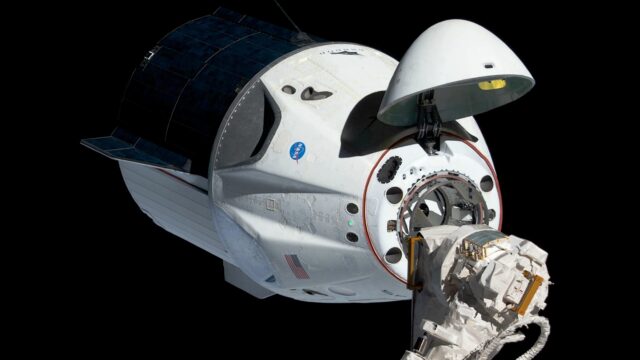
Nearly 50 payloads, featuring cutting-edge research on cancer, neurodegenerative diseases, and respiratory therapies, have returned from the International Space Station (ISS) aboard SpaceX’s Dragon spacecraft. This landmark return, part of SpaceX’s 31st Commercial Resupply Services mission for NASA, marks a significant milestone in leveraging space for terrestrial benefits. The splashdown off the Florida coast not only symbolizes a safe homecoming but heralds a potential revolution in medical science and drug delivery systems.
The array of returned experiments, sponsored by the ISS National Lab®, includes projects from esteemed institutions and collaborations aimed at harnessing the unique microgravity environment of space to advance medical research. These investigations may pave the way for groundbreaking developments in treating some of the most challenging diseases.
Advancements in Pharmaceutical Sciences
One of the standout projects comes from Bristol Myers Squibb and Redwire Space, focusing on the crystallization of small molecule compounds. In microgravity, these crystals can grow larger and more ordered than on Earth, potentially enhancing the effectiveness of therapeutic drugs. This technique could significantly improve the manufacturing processes for medications treating a variety of conditions.
Enhancing Drug Delivery through Microgravity Research
Researchers from the University of California, Santa Barbara, sponsored by the U.S. National Science Foundation (NSF), are exploring how mucus within the human airway impacts medication delivery to the lungs. Their findings could transform drug delivery models for respiratory treatments, including therapies for infants suffering from respiratory distress syndrome.
Innovations in Biosensor Technology
The University of Notre Dame’s research, also funded by the NSF, focuses on bubble dynamics in microgravity. Their innovative approach uses light to generate bubbles that capture and analyze trace substances, which could lead to new biosensor technologies for early detection of cancer markers and other trace elements in bodily fluids.
Neurodegenerative Disease Research in Space
Sachi Bioworks has initiated tests on brain organoids in space, targeting gene therapies for conditions like Alzheimer’s and Parkinson’s diseases. This research, conducted with assistance from Space Tango and funded by NASA, seeks to accelerate the development of drugs that could halt or reverse the progression of neurodegenerative diseases.
Engaging the Next Generation of Scientists
The Student Spaceflight Experiments Program (SSEP) Mission 18 also saw significant participation, with students from Ohio testing a hydration solution on plant cells in microgravity. This initiative, involving hundreds of students from grade school through college, underscores the commitment to fostering a new generation of scientists and engineers through hands-on experience in space research.
The ISS National Lab continues to provide invaluable opportunities for researchers to utilize the space station’s unique environment. These projects not only push the boundaries of scientific knowledge but also offer tangible benefits for improving human health on Earth. To discover more about the research conducted on this mission, visit the ISS National Lab launch page.










